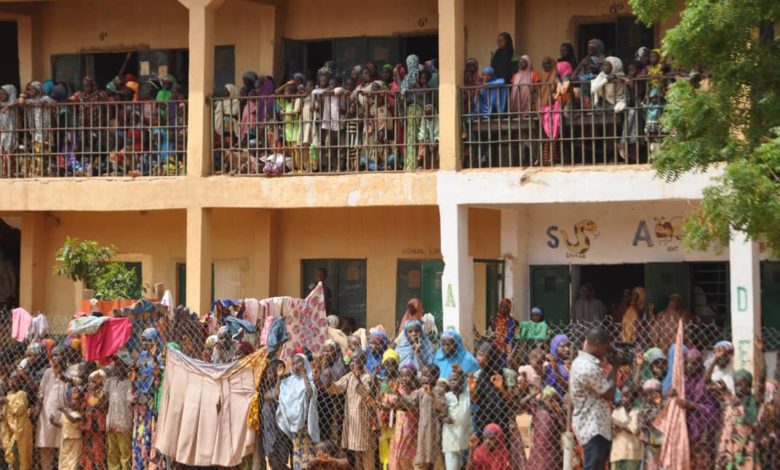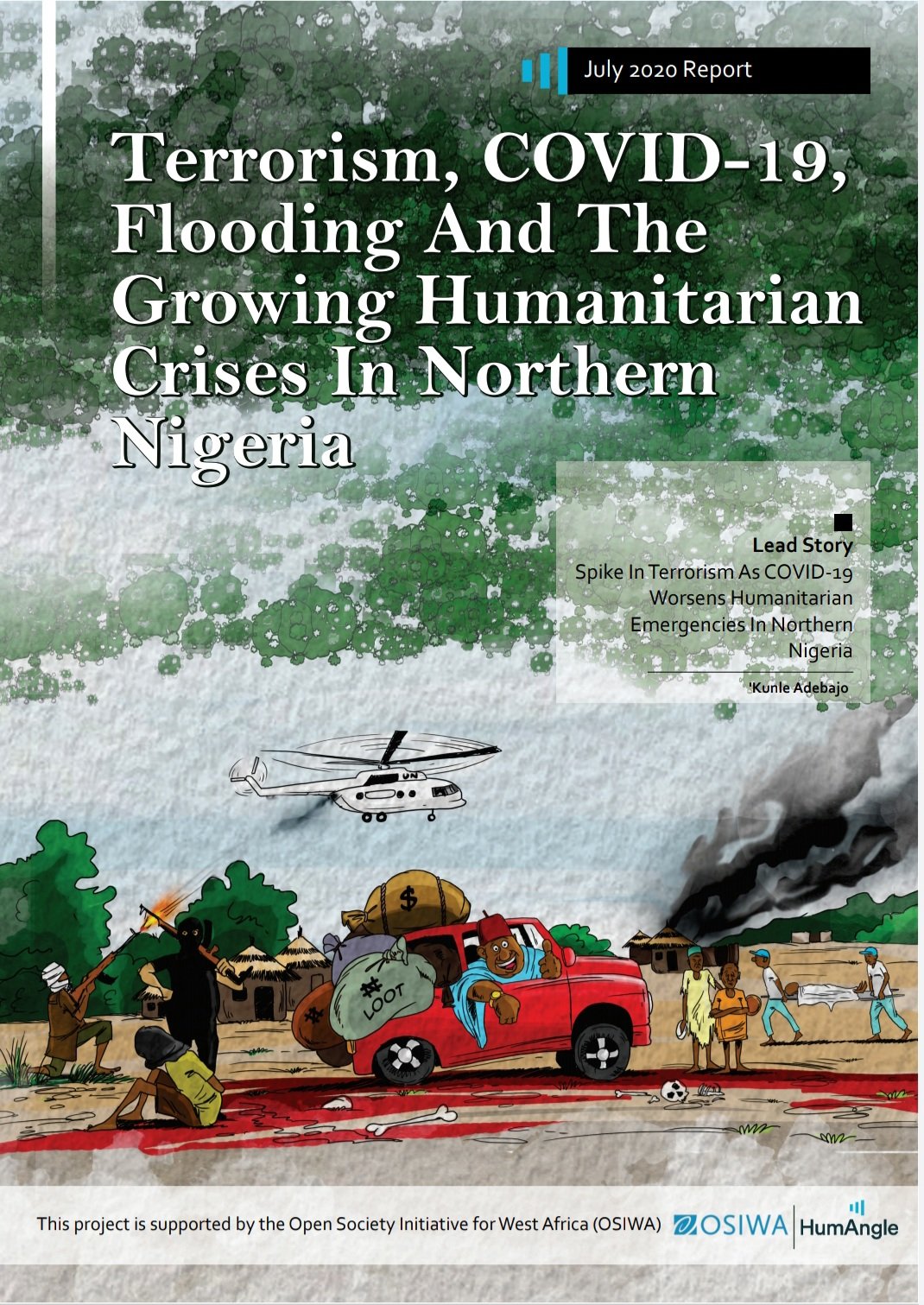Scepticism, Lack Of Awareness Exposes IDPs In Borno To COVID-19

The environment where they dwell immediately raises the red flag on several health fronts. Internally Displaced Persons (IDPs) in most parts of Borno state are particularly more vulnerable to the COVID-19 pandemic than other segments of the population considering how they live in crowded unhygienic environments.
The World Health Organization (WHO) advises that social distancing should be practised to minimise contact that may lead to COVID-19 infections.
However, for a large number of IDPs who find themselves sharing one tent with at least five persons, transmitting the virus to a nearby sleeper, especially who, like many others in the Northeast, do not believe the virus exists, is very easy.
Aisha Saminu in Stadium IDPs Camp in Borno State told HumAngle that although she lived with eight co-IDPs in one tent, none had contracted the virus.
Aisha believes COVID-19 does not exist because she has not seen anyone around her who has tested positive for the virus.
“COVID-19 is not real,” she said, adding: “No one has died of it here; even with all the measures not practised, we are still surviving.”
Aisha narrated what she saw in the camp. The only way for her to believe the virus exists is when she has seen someone die of the virus.
This lack of awareness about how the virus affects people by many IDPs is worrisome. If anyone of them contracts the disease, it will be spread rapidly in large numbers, especially with the conditions in the camps.
There are many IDPs like Aisha who share similar views. Their camp lacks not only testing facilities but water to wash hands as recommended by WHO.
Twenty-five years old Zainabu told HumAngle that although she believed the virus existed, protecting herself was a herculean task.
“We are aware of the virus, but we can’t afford to wash our hands with water or hand sanitisers.
“However, during sensitisation in our community, we were told to use ashes and salt to wash our hands,” Zainabu said.
Some NGOs provided handwashing facilities for the camp as Kellemu Modu said, but stressed that the supplies were not enough to go round inmates.
He said this was among the reasons even among those who believed the virus existed not all washed their hands.
Modu said that social distancing was not practised in the camp, pointing out that the two metres distance between persons recommended by WHO was not possible “where many IDPs sleep with one head touching the toes of another under one tent”.
Lockdown: adding salt to injury
Some IDPs told HumAngle that the lockdown measures imposed by the government to curb the spread of COVID-19 were deadlier than the virus infection.
Sakina Yusuf said she believed the virus existed and did what she could to avoid contracting it but that she was more concerned about how to get food to eat.
For Ummi, a 27-year-old mother of five, she worries that humanitarian agencies stopped working due to the virus and that the government forced inmates to stay in the camp without going out to get what to eat.
“We lack food and water. The borehole is our only source of water, and due to the lockdown, there is a scarcity of water and food. Donors have stopped all interventions,” she cried.
For 30-year-old Zubaida whose son fell ill during the lockdown, the lack of access to healthcare services and medical doctors to attend to the sick is a primary concern.
Continue reading …
Support Our Journalism
There are millions of ordinary people affected by conflict in Africa whose stories are missing in the mainstream media. HumAngle is determined to tell those challenging and under-reported stories, hoping that the people impacted by these conflicts will find the safety and security they deserve.
To ensure that we continue to provide public service coverage, we have a small favour to ask you. We want you to be part of our journalistic endeavour by contributing a token to us.
Your donation will further promote a robust, free, and independent media.
Donate HereStay Closer To The Stories That Matter





